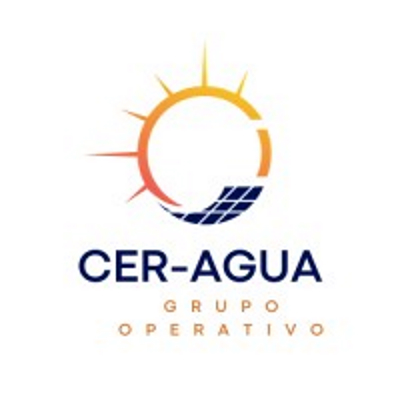
CER-AGUA Operational Group: Analysis and promotion of the creation of renewable energy communities in irrigated areas
- Type Operational group
- Status In progress
- Execution 2023 -2026
- Assigned Budget 150.000,00 €
- Scope Autonómico
- Autonomous community Aragón
- Main source of financing CAP 2023-2027
Reducing greenhouse gas emissions: Adopting renewable energy sources and more efficient technologies leads to a significant reduction in greenhouse gas emissions. Promoting clean energy: Reducing dependence on fossil fuels and promoting clean energy generation. Promoting energy efficiency: Promoting the exchange of knowledge and practices to improve energy efficiency. Reducing energy costs: Can help reduce costs associated with purchasing external energy. Creating local jobs: Can spur job creation in areas such as the installation, maintenance, and operation of renewable energy systems. Boosting the local economy: Encouraging investment in energy infrastructure and technologies within the community, which can boost the local economy. Community engagement: Encouraging citizen participation in energy decision-making. Access to sustainable energy: Can improve regional energy access by overcoming current constraints.
Reducing greenhouse gas emissions: Adopting renewable energy sources and efficient technologies leads to a decrease in greenhouse gas emissions. Promoting clean energy: Reducing dependence on fossil fuels and promoting clean energy generation. Promoting energy efficiency: Promoting the exchange of knowledge and practices to improve energy efficiency. Reducing energy costs: Can help reduce the costs associated with purchasing energy from external sources. Creating local jobs: Can boost job creation in areas such as the installation, maintenance, and operation of renewable energy systems. Stimulating the local economy: Encouraging investment in energy infrastructure and technologies within the community, which can stimulate the local economy. Community participation: Encouraging citizen participation in energy-related decision-making. Access to sustainable energy: Can improve energy access at the regional level, overcoming current limitations.
- Conduct a detailed analysis of the energy needs of 49 irrigation communities and 31 municipalities by identifying potential consumers and resources.
- Establish a consultation and participation channel for SMEs and individuals that allows their inclusion in the study of energy needs.
- Develop energy solutions adapted to local realities.
- Create a catalog of model solutions (crowdfunding, PPAs, energy sharing, shared self-consumption) to be used in local solutions.
- Integrate the economic, legal, and technical model into a higher-level and/or secondary model. Optimize local and supra-local business models by seeking collaborative agreements. Provide advice and follow-up to interested entities after the Operational Group has signed an advisory agreement. Evaluate the economic and environmental impact of the proposed actions.
The problem this project aims to address is to reduce the high energy costs borne by irrigation communities and their users, as well as by rural businesses, through projects developed in cooperation with other local economic and social stakeholders. This economic problem can be broken down into: Reducing the energy costs of irrigation communities by optimizing their management and consumption capacity with other stakeholders. Promoting local participation in self-managed energy projects for local development, as opposed to production projects oriented toward energy sales. Avoiding the loss of productivity of renewable energy installations used for irrigation due to their seasonal use.
Ultimately, the goal is to address the challenge of promoting renewable energy projects that positively impact the local population and make them key players in their development, leveraging existing productive structures, primarily irrigation.
- Developing energy solutions, integrating irrigation communities and agri-food companies, provides solutions tailored to local circumstances, maximizes energy efficiency, and promotes the incorporation of stakeholders into a Local Energy Community.
- Design of local and supra-local and/or regional business models that contribute to economic, social and environmental improvement, and that strengthen the economic competitiveness of the territory, providing competitiveness and savings to agricultural holdings through their irrigation communities.
- Coordinator/entity name: José Antonio Pradas Arnal
- Postal address: Avenida Ramón y Cajal No. 96 22006 Huesca
- Coordinator/entity email: ygimeno@riegosaltoaragon.es
+34609520907//+34974226968
- José Antonio Pradas Arnal
- Comunidad General de Riegos del Alto Aragón(ygimeno@riegosaltoaragon.es)
- Monegros Centro de Desarrollo(ceder-monegros@monegros.net)
- CR Nuestra Señora de la Carrodilla(comriegosestadilla@gmail.com)
- Universidad Politécnica de Madrid (luis.narvarte@upm.es)
- Universidad de Zaragoza(cmarcue@unzar.es)
- José Antonio Pradas Arnal






